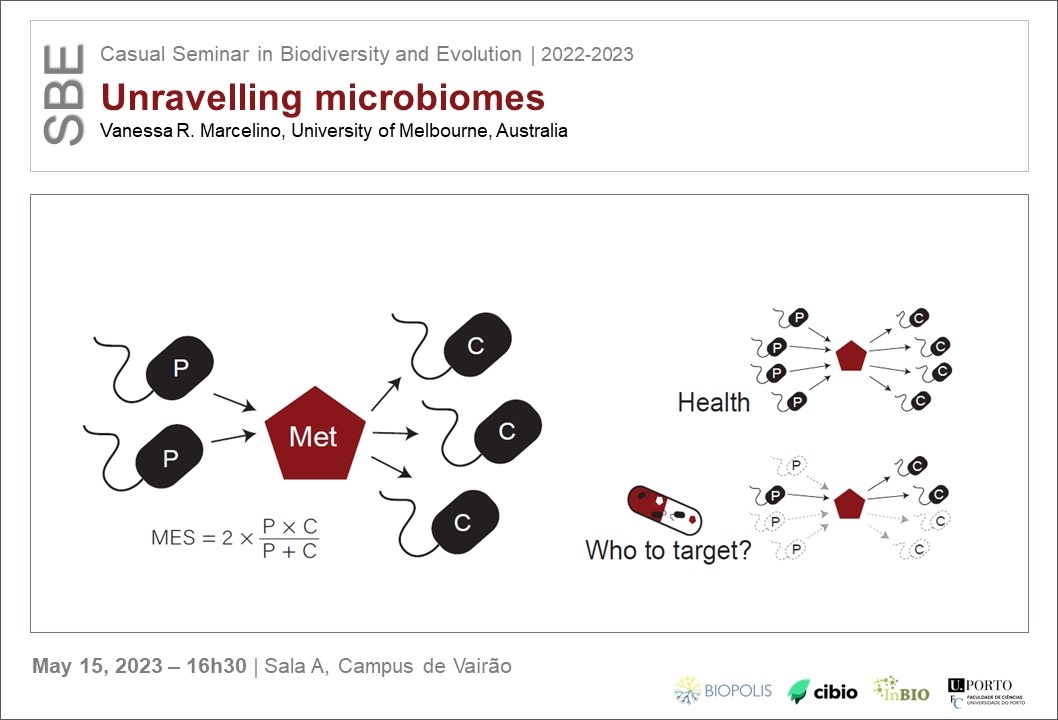Unravelling microbiomes
15 May 2023 - Vanessa R. Marcelino, University of Melbourne, Australia | 16h30 | Sala A, Campus de Vairão

CASUAL SEMINAR IN BIODIVERSITY AND EVOLUTION
Microbiome engineering has been in the spotlight as a potential solution to maintain or improve the health of several hosts, from threatened coral species to livestock and humans, but the development of microbiome manipulation strategies has been slow. Part of the problem is that it is still challenging to identify a significant fraction of microbial species and their ecological roles within host-associated microbiomes. This seminar will focus on the current challenges and advances in characterizing microbiomes from taxonomic and functional perspectives. Focusing on the human gut microbiome, I will discuss how charting microbial interactions with metagenome-wide metabolic modelling is helping to narrow down promising strategies to restore a healthy gut ecosystem.
Vanessa Marcelino works at the interface between microbial ecology, evolution and bioinformatics. She has used a range of model systems to investigate the spatial and functional distribution of organisms, from frogs (BSc in Brazil) to seaweeds (Erasmus Mundus joint MSc in Germany/France/Belgium), microalgae (PhD Australia), and human-associated microbiomes. As a postdoc Vanessa established new bioinformatic methods to study pathogens within microbial communities (University of Sydney) and to identify the microbial interactions most affected in disease (Monash University). Vanessa currently has a cross-faculty appointment as group leader within Melbourne Integrative Genomics and the Peter Doherty Institute at the University of Melbourne. Her team focuses the ecology of microbial networks, tackling both applied challenges in the development of therapies and microbiome engineering, and fundamental questions on the eco-evolutionary processes underlying biological interactions.
[Host: Pedro Beja, Applied Ecology - APPLECOL, 21st Century Conservation Lab - LACOS21]